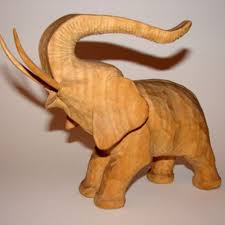
Risks with online Christmas shopping
7 Dec 2017

NSW consumers are reminded to keep an eye out for unwanted exotic plant pests in packages received from overseas, which pose a threat to the state’s $15 billion primary industries.
NSW Department of Primary Industries (DPI) Manager Plant Biosecurity Prevention & Preparedness, Chris Anderson, said it’s important for everyone to be aware and to report anything unusual.
“Online shopping, gifts from family and friends or imported items can easily harbour insect pests and diseases which could cause damage and threaten our way of life,” Dr Anderson said.
“If you are purchasing goods from overseas, especially seeds and items made from wood or organic material, check whether it can legally come into Australia.
“Australia is in the fortunate situation of being free of many significant pests that adversely affect agricultural production in other countries.
“Good biosecurity practices protect us all from the impacts of animal and plant pests, diseases and weeds.
“We all share the responsibility for managing biosecurity risks and together we can protect NSW’s strong economy, safe healthy food supply and unique natural environment.”
The NSW DPI website lists notifiable exotic plant pests and diseases in NSW https://www.dpi.nsw.gov.au/biosecurity/plant/notifiable-list
NSW DPI encourages people to report any signs of pests and diseases found in imported goods by calling the Exotic Plant Pest Hotline 1800 084 881.
Take a clear photo of the pest and email the clear photos with a brief description and your contact details to biosecurity@dpi.nsw.gov.au
If samples for diagnostic purposes are required Biosecurity NSW will advise you on how to take a sample or arrange a Biosecurity NSW person to take samples.
Do not move the pest, plant or plant parts until you have consulted with Biosecurity NSW staff and are sure that the pest or disease is not an exotic plant pest.
Media contact: Anne Brook (02) 6763 1163 or 0477 358 305

